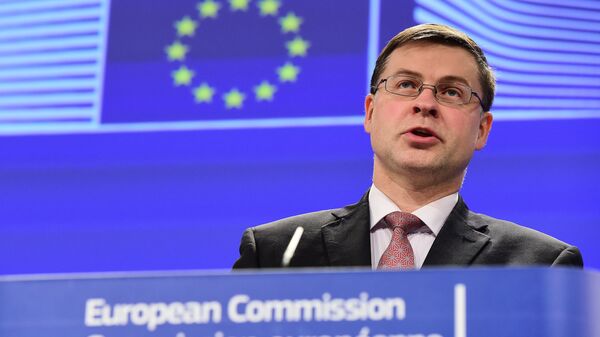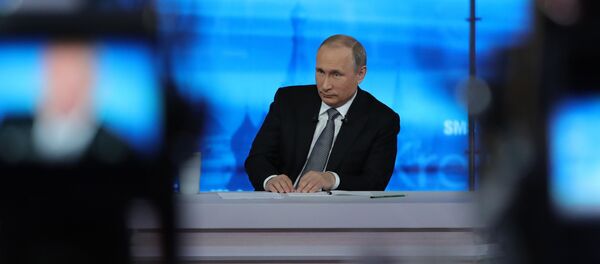WASHINGTON (Sputnik) — The anti-Russian sanctions regime was first implemented in 2014 after Brussels joined Washington in accusing Moscow of fueling the Ukrainian crisis. Russia has repeatedly refuted the allegations and responded with an embargo on food products from the countries that sanctioned it.
"As regards [Russian sanctions] impact on the EU’s growth, the European Commission’s assessment is that it has an overall limited impact, but an uneven impact," Dombrovskis said.
The European Union had to "look at measures to mitigate the negative impact" of anti-Russian sanctions on countries that have lost export revenues, Dombrovskis explained. The measures include subsidizing agriculture and dairy producers in the Baltic States, Finland, and Central Europe.
Dombrovski emphasized that the European Commission will maintain the Russian sanctions regime until the Minsk peace agreements, designed to restore stability in Ukraine, are fully implemented.
The European Commission will reconsider whether to renew or lift the sanctions on Russia in June.


